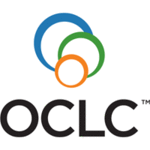Online Computer Library Center
 |
|
| Type | Nonprofit membership cooperative |
|---|---|
| Founded | 1967 |
| Headquarters | Dublin, Ohio, United States |
| Area served | Worldwide |
| Key people | Robert L. (Jay) Jordan, President and CEO |
| Industry | Library services |
| Products | WorldCat, NetLibrary, FirstSearch, Dewey Decimal Classification, VDX, WebJunction, QuestionPoint |
| Members | Almost 27,000 libraries, archives and museums in 86 countries[1] |
| Website | oclc.org |
OCLC Online Computer Library Center, Inc. (OCLC) is "a nonprofit, membership, computer library service and research organization dedicated to the public purposes of furthering access to the world’s information and reducing information costs".[2] It was incorporated on July 6, 1967 as the not-for-profit Ohio College Library Center.[3] More than 27,000 libraries in 86 countries and territories use OCLC services to locate, acquire, catalog, lend and preserve library materials.[2] The organization was founded by Fred Kilgour, and its head office is located in Dublin, Ohio, U.S.
Contents |
Services
OCLC provides bibliographic, abstract and full-text information to anyone.
OCLC and its member libraries cooperatively produce and maintain WorldCat—the OCLC Online Union Catalog, the largest online public access catalog (OPAC) in the world. WorldCat has holding records from public and private libraries worldwide. WorldCat is available through libraries and university computer networks. The Open WorldCat program makes records of library-owned materials in OCLC's WorldCat database available to Web users on popular Internet search, bibliographic and bookselling sites. In October 2005, the OCLC technical staff began a wiki project allowing readers to add commentary and structured-field information associated with any WorldCat record.
OCLC owns a preservation microfilm and digitization operation called the OCLC Preservation Service Center, with its principal office in Bethlehem, Pennsylvania, U.S. Libraries, museums, historical societies, colleges and universities utilize the OCLC Preservation Services to preserve printed works, books, maps, manuscripts, newspapers and other materials in microfilm for future generations with its 500-year life expectancy. OCLC Preservation Services converts print and microfilm to digital objects for computer access.
Online database
OCLC has a database for cataloging and searching purposes which is used by librarians and the public. OCLC Passport was one of the computer programs used. Connexion was introduced in 2001 and replaced Passport when it was phased out in May 2005.
This database contains records in MAchine Readable Cataloging (MARC) format contributed by library catalogers worldwide who use OCLC as a cataloging tool. These MARC format records are then downloaded into the libraries' local catalog systems. This allows libraries to find and download records for materials to add to their local catalog without the lengthy process of cataloging each individually.
As of February 2007, their database contained over 1.1 billion cataloged items. It is the world's largest bibliographic database. Connexion is available to professional librarians as a computer program or on the web at connexion.oclc.org.
WorldCat is available to the public for searching a web-based service called FirstSearch, as well as through the Open WorldCat program.
The Online Computer Library Center acquired the trademark and copyrights associated with the Dewey Decimal Classification System when it bought Forest Press in 1988.
WebJunction is a division of OCLC funded by a grant from the Bill and Melinda Gates Foundation.
QuestionPoint reference management service provides libraries with tools to communicate with users. Gene William Burnham. This around-the-clock reference service is provided by a cooperative of participating global libraries.
Regional service providers
Regional service providers contract with OCLC to provide support and training for OCLC services. This chart represents only OCLC services.
Company acquisitions
OCLC acquired NetLibrary, the largest electronic content provider, in 2002 and sold it in 2010 to EBSCO Industries.[4] OCLC owns 100% of the shares of OCLC PICA, a library automation systems and services company which has its headquarters in Leiden in the Netherlands and which was renamed "OCLC" at the end of 2007.[5] In June 2006, the Research Libraries Group (RLG) merged into OCLC. On January 11, 2008, OCLC announced[6] that it had purchased EZproxy. It has also acquired OAIster. The process started in January 2009 and from 31 October 2009, OAIster records are freely available via WorldCat.org
See also
- Dublin Core
References
- ↑ "Cooperation". OCLC. http://www.oclc.org/us/en/about/cooperation/default.htm. Retrieved March 18, 2010.
- ↑ 2.0 2.1 "About OCLC". OCLC. http://oclc.org/us/en/about/default.htm. Retrieved March 18, 2010.
- ↑ IDEALS, Initial system design for the Ohio College Library Center: A case history
- ↑ Jordan, Jay (March 17, 2010). "Letter to members 2010". OCLC. http://www.oclc.org/services/content/lettertomembers2010.htm. Retrieved March 18, 2010.
- ↑ Michael Rogers (October 30, 2007). "CLC/OCLC Pica Merge". Library Journal (New York). http://www.libraryjournal.com/article/CA6495514.html. Retrieved November 9, 2007.
- ↑ OCLC (January 11, 2008). "OCLC acquires EZproxy authentication and access software". Press release. http://www.oclc.org/news/releases/200690.htm.
External links
- OCLC
- WorldCat
- Open WorldCat Program
- Netlibrary.org homepage
- Works by or about OCLC in libraries (WorldCat catalog)